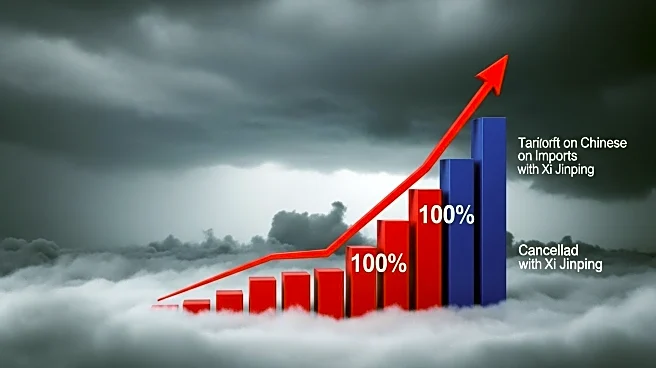What's Happening?
President Donald Trump announced a new policy imposing 100% tariffs on Chinese imports, set to begin next month. This decision follows his threat to cancel an upcoming meeting with Chinese President Xi Jinping. The announcement marks a significant escalation in trade tensions between the United States and China, as Trump aims to address trade imbalances and protect American industries.
Why It's Important?
The imposition of 100% tariffs on Chinese imports is likely to have substantial impacts on U.S. industries and consumers. While it aims to protect domestic manufacturers, it could lead to increased costs for goods and potential retaliatory measures from China. This move may affect global trade dynamics and has the potential to influence economic relations between the two countries, impacting businesses and consumers alike.
What's Next?
The next steps involve monitoring the implementation of the tariffs and observing China's response. Stakeholders, including businesses and policymakers, will need to assess the economic implications and adjust strategies accordingly. The potential cancellation of the meeting between Trump and Xi Jinping could further strain diplomatic relations, necessitating careful negotiation and dialogue to mitigate adverse effects.
Beyond the Headlines
This development highlights the complexities of international trade and the challenges of balancing protectionist policies with global economic cooperation. It raises questions about the long-term sustainability of such tariffs and their impact on international relations and economic stability.










